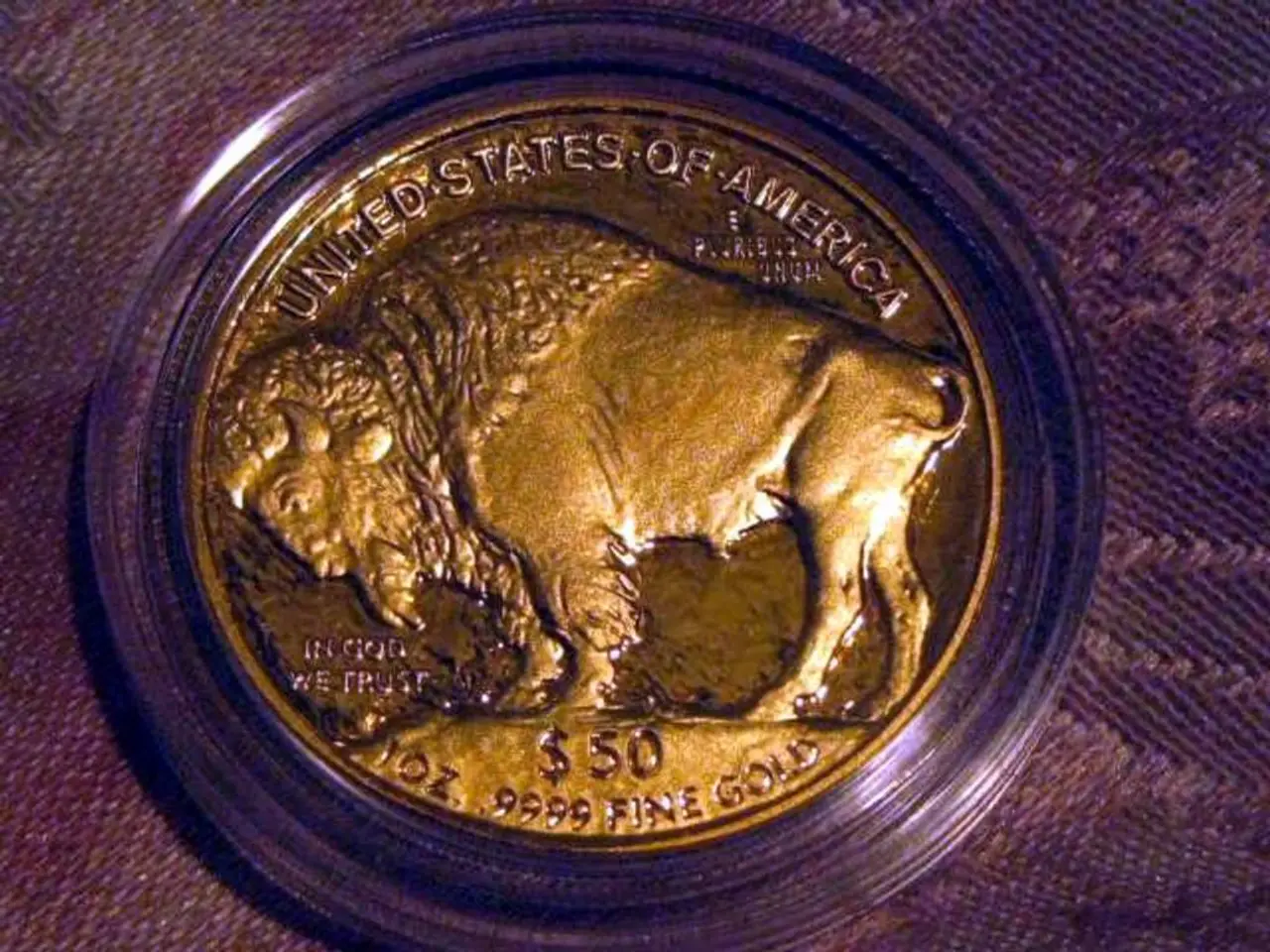Dollar's alleged downfall largely overblown, suggests recent analysis
In the midst of global diplomacy, we're traversing from the G7 summit in Canada to the NATO gathering in The Hague next week. The world watching as President Trump conducts foreign policy via tweets, UK and Canadian leaders sip pints in the pub, and French President makes impromptu speeches in Greenland. Meanwhile, missiles are flying from Kiev to Tel Aviv, and Russian President Putin offers to mediate Middle East conflicts. It's an unsettling scene indeed.
Investors, especially financial ones, usually seek the safety of deeply liquid assets when the political winds are rough. Historically, the US Dollar and US Treasuries have been the go-to safe haven. However, concerns have been raised after the post-Liberation Day market volatility. Trump's deficit-busting Big Beautiful Bill and the Moody's downgrade of the US credit rating has raised doubts about the future of US government bonds.
So, what's the alternative? According to the latest report on "the international role of the euro" by the ECB, Gold has surpassed the Euro as the second-largest component of central bank reserve assets. ECB President Lagarde pictures this as an opportunity for the single currency, calling it a "global euro" moment. Approximately 25% of the staggering $3 trillion foreign exchange transactions in London every day involves the EUR/USD currency pair, and 40% of global invoicing is done in Euros.
A look back at the ECB report suggests a steep climb. Although the Euro accounts for 16% of global official reserves, the US Dollar holds 46%. A vast majority of the MSCI World Index comprises US equities. Even Canadian pension funds, despite their politeness towards Trump's annexation threats, have invested nearly half of their portfolio in the US.
Despite these numbers, some believe the European market is a promising investment. Tom Nides, Vice Chairman of Strategy and Client Relations at Blackstone, recently said, "We've been quite optimistic [on Europe]. Governments are relatively stable here. Shifting money to Europe is certainly not a bad bet".
But Europe's political landscape is far from steady. The Dutch government has collapsed, the far-right Chega party has replaced the Socialist party to become Portugal's opposition after a snap election, protestors have flooded the streets of Madrid demanding an election, France has had its second consecutive unelected prime minister, and Germany's new leader faced initial defeats in the parliamentary vote to become Chancellor for the first time in post-war history. Voters are angry, and coalitions are fraying.
On the other hand, the US electoral system has delivered a clear leader, whose party commands both houses of the legislature and whose judicial appointments reflect his ideology. Despite concerns about his economic policies, the relative stability of the US system makes it an attractive option for investors.
Contrary to rumors, the dollar, or "Trump's Dollar," has yet to witness its demise. While the president's radical plans challenge long-held economic orthodoxies, the world is still a long way from having a viable alternative to deep and liquid US markets.
Helen Thomas is chief executive of Blonde Money.
- Investors, particularly those focused on finance, often seek refuge in deep and liquid assets when political conditions are volatile, and the US Dollar and US Treasuries have traditionally served this purpose.
- However, with the post-Liberation Day market volatility and concerns over Trump's deficit-busting policies and Moody's downgrade of the US credit rating, some investors have questioned the future of US government bonds as a safe haven.
- Gold, on the other hand, has emerged as a possible alternative, as it has surpassed the Euro to become the second-largest component of central bank reserve assets, according to a recent ECB report.
- Despite concerns about Europe's political instability, some, like Tom Nides of Blackstone, remain optimistic about the potential of the European market as an investment, citing relative stability of governments in the region.







